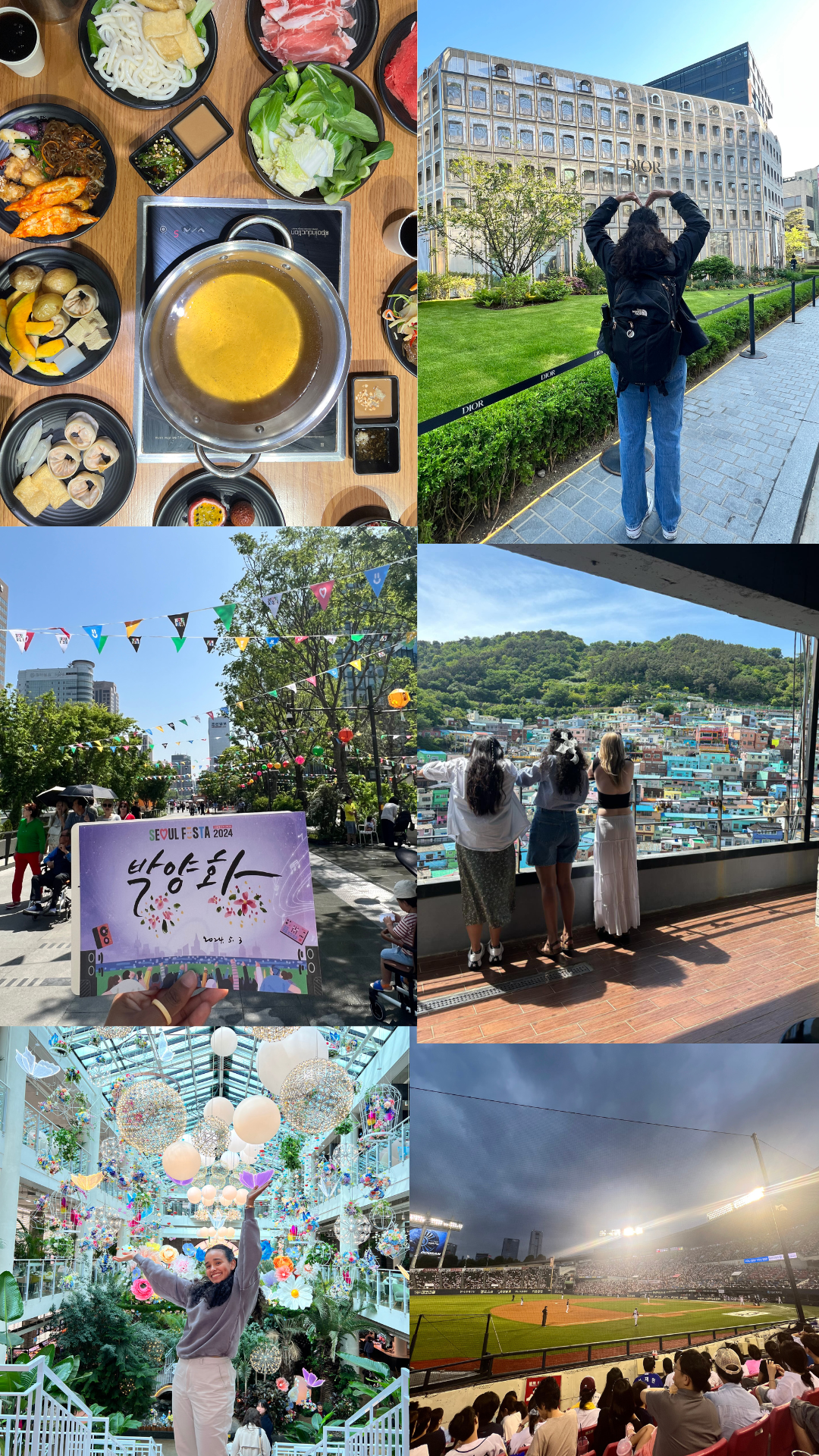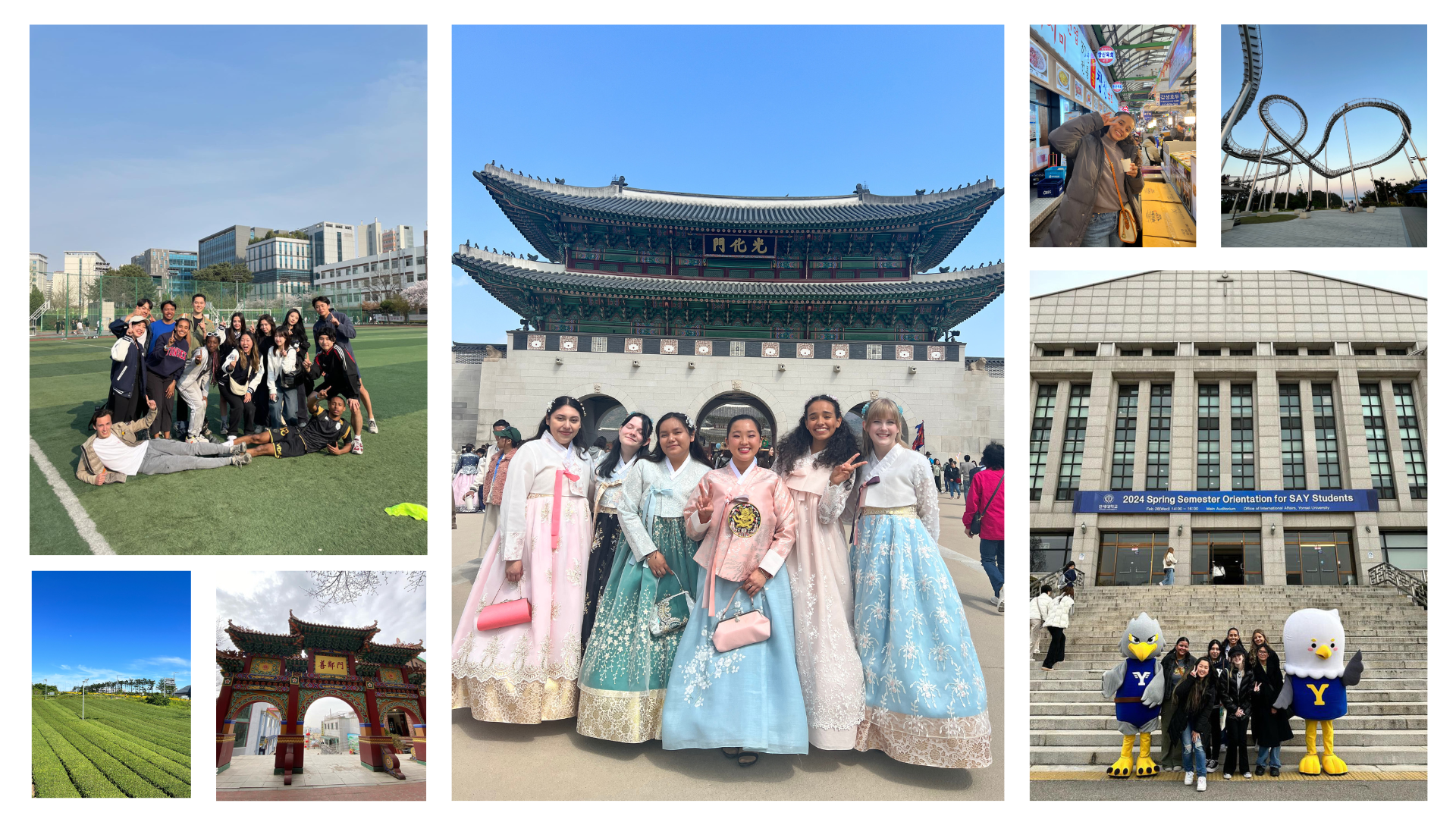“Challenges make you discover things about yourself that you never really knew. They’re what make that instrument stretch — what make you go beyond the norm.”
~ Cicely Tyson
Any student studying abroad will hear this phrase dozens of times: culture shock. Every study abroad orientation, video, and post will mention it. Even though the idea of culture shock is straightforward enough, I did not completely grasp the concept of “culture shock” until I was living in South Korea. Gradually, I realized that culture shock manifests itself differently for everyone and each person lives a very unique experience in terms of adapting to a new environment. Nonetheless, identifying and categorizing the different areas where I often experienced culture shock made adapting to my new, temporary home a lot easier. Thus, with the goal of making culture shock more tangible, I provide three areas where it is easy to experience culture shock. Moreover, I hope describing my own experience adapting to a new culture in South Korea as a Hispanic, female student can provide additional cultural insights to anybody considering studying in South Korea.
On the one hand, there is the immediate “new place” culture shock, which I experienced as soon as I stepped off my flight at Incheon Airport. In the course of 15 hours, I went from being with family in an environment that I knew how to navigate to being alone in a new country surrounded by people I could not understand. It was like stepping into a new world, one I had only ever seen on TV. Even though it is very easy to get overwhelmed in these moments, my greatest advice is to take it one step at a time, over and over again. Land. Customs. Baggage. Exchange Money. Find the airport bus stations. Find the correct bus. Pay for the ticket. Get on the bus. Find the hotel. Sleep. And repeat every single day. The reality is that this “new place” culture shock will last a few weeks, until you begin to familiarize yourself and learn to navigate a new campus, dorm, neighborhood, transportation system, etc. Throughout the process, be kind to yourself and give yourself credit for your victories, no matter how small.
For instance, the day after I landed I had to relocate from my hotel to the dorms. I successfully managed to order a taxi but, after a particularly unsuccessful conversation with my taxi driver, all I wanted to do was hole up in my room. Quickly, I realized most people in Korea will talk very fast to foreigners, even if they realize you don’t speak Korean. Even though some people will give you time to use a translating app, most will continue talking and eventually leave. As did my taxi driver. Since these situations were particularly stressful, I wondered if most of my interactions would be like that. For the most part they were, but they definitely got easier with time. Another piece of advice: get an e-sim for your phone upon arrival because having data is so essential to translate signs, look for transportation, find your accommodation, etc. For many students, this type of culture shock was especially difficult at the beginning because often all you can think about is all you left behind. Family, friends, comfort. In this first stage, it really pays off to focus on adapting and building a new, temporary home. Personally, I really benefitted from learning Korean while I studied abroad. I also loved building a new group of friends, who eventually became like family. Your new support network is worth gold and makes it easier to overcome and laugh off any awkward situation. Most importantly, it really helps to remember why you decided to study abroad in the first place, as this will keep you motivated through any challenging situation.
In my case, the excitement of being in a new country helped me overcome this initial culture shock. As the weeks progressed and I got more accustomed to my new environment, however, I began to experience a new type of culture shock: the “outsider” syndrome. I experienced this culture shock at unexpected times and places. When I was the only noticeably different student attending a lecture or studying at the library. When I was sitting on the train and people were hesitant to take the seat beside me; the “foreigner seat”. When I was walking down the street, and an older man or woman would very noticeably stare. Coming from a culturally diverse place where I am also surrounded by a majority Hispanic community, I began to realize how much our social environment adds to our feeling of comfort and safety; there is a shared cultural understanding. In South Korea, I often felt like an outsider welcomed to observe and admire the culture, which I enjoyed. For the most part, I acknowledge I was a very noticeable foreigner in Korea, so the lack of inclusivity primarily boiled down to a language and culture barrier. Nonetheless, this experience led to a very interesting transformation and development arc.
In the beginning, the excitement makes every experience and encounter amazing. As the weeks progress, you begin to notice that even though you are adjusting, your new environment will still view you as a foreigner. A tourist. An outsider. Unchecked, this realization makes you doubt your value. Nonetheless, eventually I realized that the sense of belonging is relative. Even if I felt like an outsider in Korea, I had family, friends, and a culture where I fit in back home. This constant reaffirmation helped me stop paying attention to small encounters or circumstances that made me feel like an outsider. Thus, this process helped me realize that my sense of belonging and worth did not depend on my environment, but in the confidence I have in myself. More importantly, feeling like an outsider fosters feelings of compassion and understanding. For example, I learned to appreciate the efforts of people who went out of their way to help me in an uncomfortable situation or who created a welcoming environment. This helped me understand that our lives are not separate bubbles, each isolated from everybody else. On the contrary, our efforts to help others are valuable, which is why I now strive to help people feel welcome and included. Thus, studying abroad can be uncomfortable, but these feelings hold valuable lessons that can help us become more compassionate individuals.
Lastly, there is “institutional” culture shock, which personally was the most surprising. Living in the U.S., the media often portrays South Korea as very welcoming of foreigners and striving to extend their presence internationally. Even in Korea, there are many events and festivals targeted specifically towards foreigners, providing them with unique experiences like K-Beauty, K-Food, K-Music, etc. These events, like Seoul Festa, are completely free and amazing opportunities to learn about the culture. For this reason, it was interesting to see other events specifically exclude foreigners. For example, an event that particularly frustrated a lot of exchange students was Akaraka. Every spring, universities in South Korea host the well-known university festivals, which are a time of fun and excitement for many students amidst the demanding school environment. During these festivals, students dress in school spirit and dozens of Korean artists are brought to the festival, all with the goal of bolstering school spirit. Therefore, it was a little disappointing that only exchange students were explicitly denied the opportunity to participate. Similarly, the public in general was often times more hesitant of interacting with and welcoming foreigners, especially as one travels outside of Seoul. Thus, experiencing two different attitudes towards foreigners was very interesting and ultimately deepened my cultural understanding of South Korea. Moving forward, I realize South Korea has its own complexities, just like any other country, and I am very curious to see how Korea will continue to expand and grow in the future.
Beyond any cultural adjustments, South Korea is an incredible country that promises any visitor an unforgettable experience. The food is an amazing culinary experience, meant to be shared and enjoyed with friends and loved ones. The entertainment industry is unparalleled, with countless of festivals and activities. Probably my biggest positive cultural shock was the frequency and ease with which events were held throughout the country and especially in Seoul. From concerts to fan-meetings to fireworks festivals, I had a blast listening to some of my favorite artists and enjoying all that the city had to offer. Pop-up stores are such a central part of Seoul that there are streets and random events where companies build temporary shops and promote their new products, often gifting many new items to their customers. The transportation system is immaculate and incredibly convenient, making all travel incredibly accessible at all hours of the day. Most of all, you are bound to meet numerous people that are genuinely kind and caring, while learning one or two lessons about the cultural values about respect and work ethic.

All of this to say that culture shock arises under many different circumstances and manifests itself differently for everybody. When confronted with these situations, the key lies in not allowing our initial, negative emotions control our reactions or influence our entire experience in a new place. Rather, it is important to remember that everyone is bound to feel surprised when confronted with a new culture and environment. Moreover, different is not synonymous with bad and every uncomfortable experience is an opportunity to simultaneously gain a deeper understanding of ourselves and the complexities of a new culture. To anybody studying abroad, remember that as much as you will inevitably face uncomfortable situations, you are bound to experience one hundred times more positive experiences if you allow yourself. The important thing is to keep moving forward and surround yourself with people that know who you are and with new friends that are also living this experience with you. All in all, studying abroad is a great opportunity to expand your worldview, learn to deal with the complexities of social norms, and become a more understanding individual, all of which are crucial in the 21st century.

